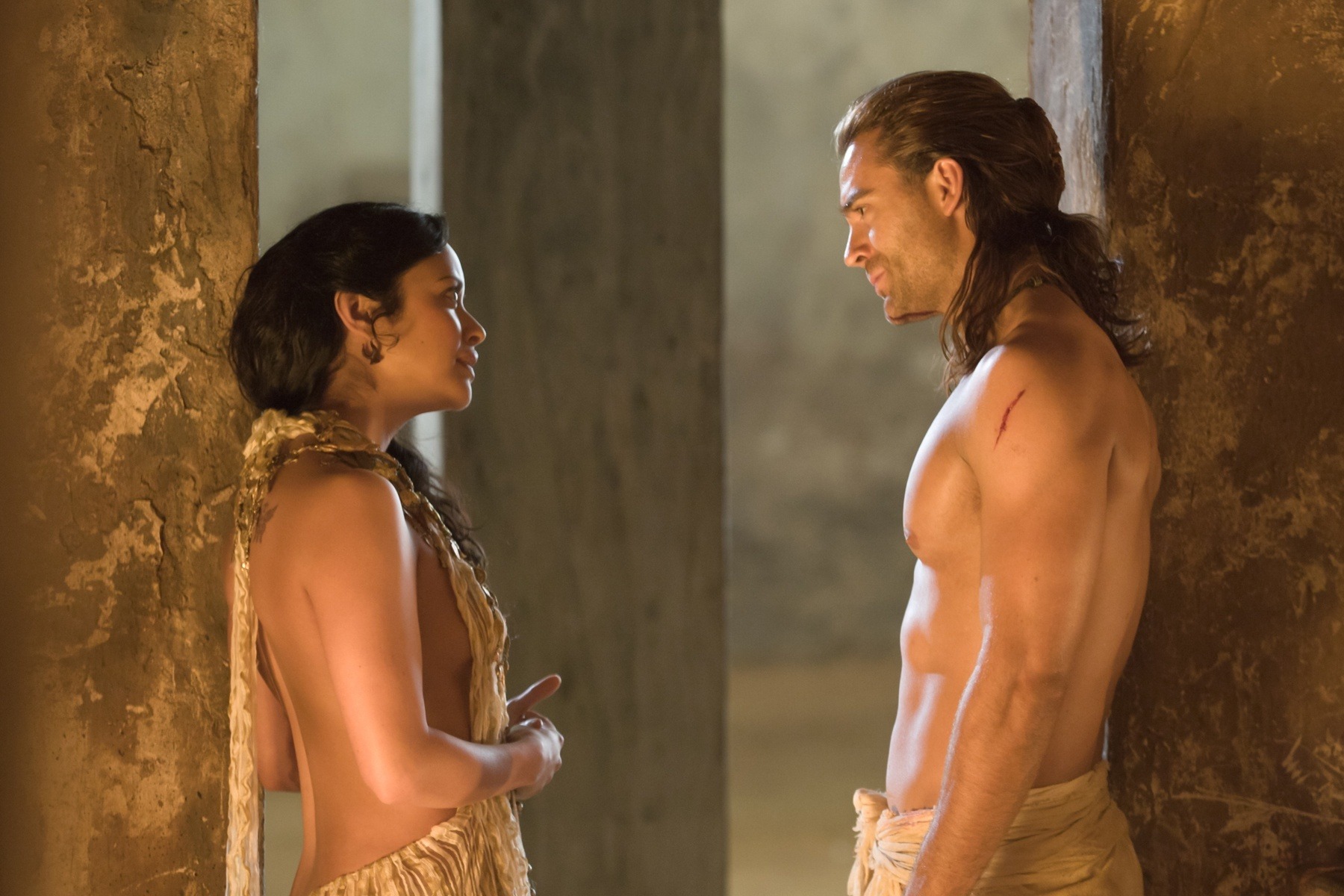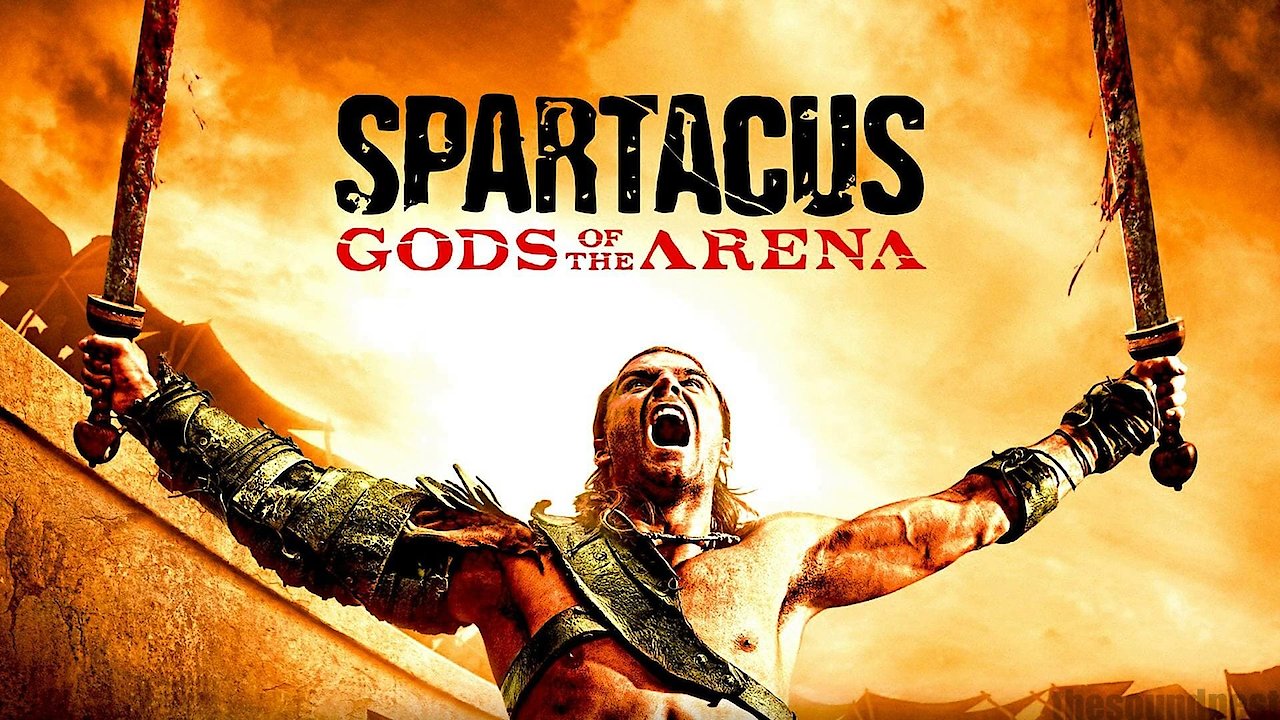Spartacus: Gods of the Arena (2011) – A Bloody Prelude to Power and Betrayal

Spartacus: Gods of the Arena (2011) is a historical drama television series that serves as a thrilling prequel to the highly acclaimed Spartacus: Blood and Sand. Set in the brutal and politically charged world of ancient Rome, this six-episode series dives deep into the origins of the gladiator arena and the notorious House of Batiatus. While the central focus of the series remains on power struggles, loyalty, and betrayal, it introduces viewers to the complex characters and harsh realities that paved the way for the later rise of Spartacus.
A Prequel to Spartacus’ Legacy
Before Spartacus was thrust into the limelight as the champion gladiator who would lead a rebellion against Rome, the world of gladiators was already being shaped by the ambitious and treacherous figures in the House of Batiatus. The series focuses on the rise of Batiatus (John Hannah), the owner of a gladiator school in Capua, whose thirst for power and influence drives him to scheme and manipulate those around him. While we know Batiatus as a key antagonist in the Spartacus series, Gods of the Arena offers viewers a closer look at his complex character, his ambitions, and the darker elements of his personality that would lead to his eventual downfall.
The Gladiators: Heroes and Pawns
At the heart of the series are the gladiators, who are torn between the loyalty they feel toward their masters and their own survival instincts. Gannicus (Dustin Clare), a skilled and charismatic gladiator, emerges as a central figure in the story. Gannicus is renowned for his prowess in the arena and stands as one of the most celebrated gladiators in the House of Batiatus. However, his journey is marked by a struggle for freedom, identity, and survival in a world where life is disposable.
Alongside Gannicus is Lucretia (Lucy Lawless), the cunning and manipulative wife of Batiatus. Lucretia’s role in the series is as much about power and control as it is about passion and betrayal. Her relationship with her husband is fraught with intrigue, as she is not only a partner in his schemes but also a player in her own right, often pulling the strings behind the scenes. Lawless brings a layer of depth and complexity to the character, balancing between cold, calculated manipulator and a woman caught in her own web of desire and ambition.
Themes of Power, Betrayal, and Honor

The series is known for its unapologetically intense action, showcasing brutal gladiatorial combat that is both visceral and symbolic of the power dynamics at play. The gladiators fight not only for survival but also for the honor of their masters and the chance for freedom. However, as the series progresses, the personal stories of betrayal, loyalty, and ambition take center stage. Characters who seem honorable are often revealed to have hidden motives, while those who appear to be mere pawns in the system develop into complex players in their own right.
The political intrigue of ancient Rome is also a major theme. Batiatus’s desire for power leads him to make dangerous alliances, manipulate enemies, and use the gladiators as instruments of his own rise. The series paints a picture of a world where power is everything, and betrayal is often the only means of survival.
The Arena as Both a Stage and a Prison
The gladiatorial arena itself is a character in its own right in Gods of the Arena. It represents the cruel reality of Roman entertainment, where life and death are decided by the whims of the wealthy and the crowd’s bloodlust. The arena is where gladiators are pitted against each other in deadly combat, but it is also where they are tested emotionally and mentally, as they come to terms with their roles as both slaves and warriors.
In the Spartacus universe, the arena is not just a place of physical violence but also a psychological battleground, where the gladiators are forced to confront their own mortality and question their loyalties. In Gods of the Arena, this psychological depth is explored through Gannicus, whose journey in the arena reflects the larger struggles for power, freedom, and identity.
A Visceral Viewing Experience
Spartacus: Gods of the Arena is known for its unapologetically graphic content, including explicit violence, nudity, and strong language. The show doesn’t shy away from depicting the brutality of ancient Rome, and the action scenes are often stylized, slow-motion depictions of gladiatorial combat that emphasize the visceral nature of the battles. This intense presentation of violence serves as a way to convey the harsh realities of the gladiatorial world, where survival is a daily fight.
However, beyond the blood and gore, the series also offers a deeper, more intricate look at the characters and the emotional stakes behind their struggles. The drama is rich with complex relationships, shifting loyalties, and political intrigue, making it a compelling prequel that sets the stage for the epic story that would follow in Spartacus: Blood and Sand.
Conclusion: A Compelling Prelude
Spartacus: Gods of the Arena stands as an exciting and intense prequel to the Spartacus series, shedding light on the origins of the gladiatorial world and the power dynamics that define it. With strong performances from John Hannah, Lucy Lawless, and Dustin Clare, as well as a gritty and engaging storyline, the show dives deep into themes of ambition, betrayal, and honor. It’s a must-watch for fans of the original Spartacus series and those looking for a brutal, action-packed historical drama that explores the dark side of ancient Rome.











